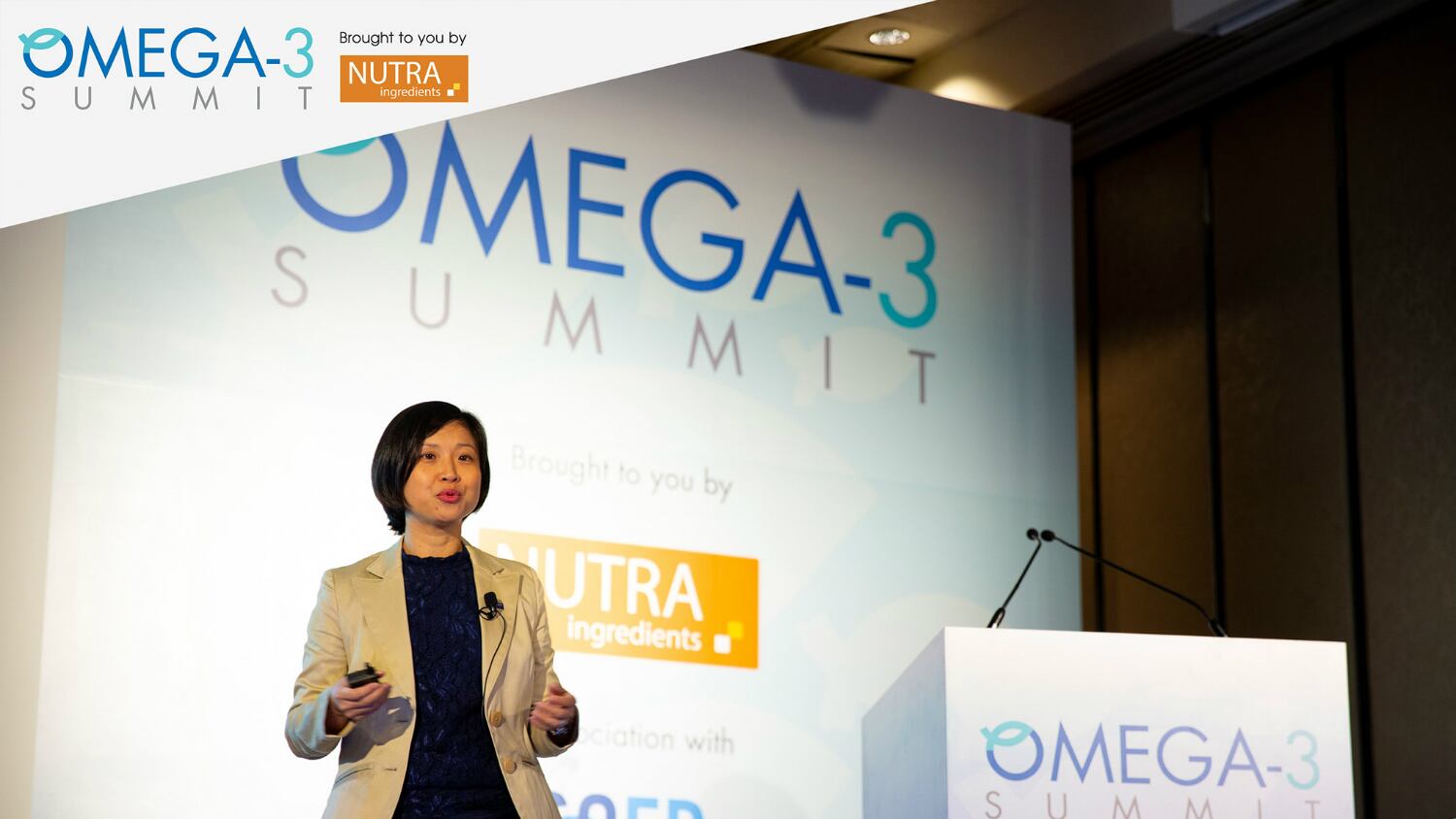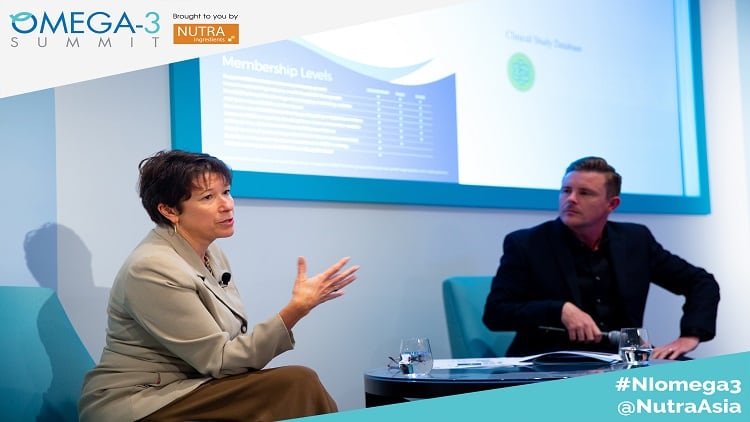BASF Human Nutrition's global head of marketing, Goh Lay Kwan, was addressing delegates at the first NutraIngredients Omega-3 Summit, held in Singapore from February 20 to 22.
She started by saying China and the rest of APAC were responsible for much of the recent growth in the category. While the US is responsible for 30% of global market sales, China and Europe are now tied at 20%.
Goh said: "If you look at how this correlates to volume and value, you will see growth is coming mainly from China and the wider Asia-Pacific region. Looking at momentum moving forward, between 2017 and 2022, we expect Asia to drive growth."
Conversion and compliance
However, she then highlighted the low level of consumption even among consumers familiar with omega-3 and its health benefits.
"In China, if you ask any consumer out on the street, 86% will say they are aware of omega-3 supplements. However, only 28% are taking such supplements in urban China.
"Even in a supplement-taking country like Australia, where awareness is very high and 95% of consumers know about omega-3, the number of people taking such supplements is only at 30%.
"Just a snapshot of these two countries alone shows us there is a usage gap we can close. Awareness is high, but conversion to usage is low."
She added that researchers had determined that an Omega-3 Index of more than 8% was associated with the lowest risk for death from cardiovascular diseases, as well as many other health benefits.
In parts of Asia-Pacific, however, overall measurements are shockingly low: India, along with several Middle Eastern countries, are among those with the lowest levels of omega-3 — below 4%. Australia and China fall within the 4% to 6% range, with Mongolia in the 6% to 8% range and Japan in the 8% to 9% range.
Too many, too little
She also mentioned several challenges within the category — while an increasing number of products have been hitting the shelves, there is still insufficient EPA and DHA contained in some supplements, with leading brands putting only 30% of both fatty acids in their offerings.
Furthermore, she questioned some newer formats, such as gummies, one whether they were able to fully deliver the recommended levels of EPA and DHA to consumers.
Goh also presented results from consumer research BASF had commissioned in 2018, from which it identified three key barriers to omega-3 consumption: a lack of confidence in efficacy, lifestyle factors, and sensory factors.
Among 4,500 consumers surveyed in APAC, 20% said they did not take omega-3 supplements as they were unsure of their efficacy, while 11% felt they did not need such supplements.
In addition, 14% said they tended to forget to take them regularly, 10% said they were too costly, 9% wanted to cut down on the number of pills they were taking, and 6% said they relied on diet alone for their omega-3 intake.
Finally, 10% said they found the taste of omega-3 supplements unpleasant, and 7% complained of 'fish burps' after consuming them.
Overcoming omega-3 challenges
Goh said there was an increasing need to establish strong reasons to believe in omega-3's efficacy and as such, more evidence-based supplementation was required.
Some of the key ways to achieve this are dried blood spot technology, individualised Omega-3 Index testing, and high-quality supplementation developed using patented technology.
It is also necessary to educate consumers on dietary habits that could lead to poor absorption of omega-3, such as skipping meals or eating only low-fat or non-fat foods.
Goh also took the opportunity to mention Accelon, an absorption accelerator developed by BASF to help raise uptake of omega-3 using SMEDS (self-micro emulsifying delivery system) technology.
Upon entering the stomach, a high-concentrate omega-3 soft-gel made with the technology disperses the omega-3 rapidly in a micro-emulsion that then enters the intestine, where the micro-droplets provide a more accessible surface for more effective digestion, allowing for significantly more EPA and DHA to diffuse and be absorbed into the body's mucosal cells.
According to Goh, Accelon increases the total uptake of omega-3 to the bloodstream by a minimum of four times compared to standard fish oils, even without food consumption.
"We conducted two separate clinical studies to determine the relative improvement of absorption of EPA and DHA from the Accelon formulation.
"The average improved absorption by Accelon was 6.2 and 9.6 times better than from pure oil. A conservative interpretation of this information is that there is more than a 97.5% probability that the improvement of absorption is at least four times."
She also reiterated the importance of constant innovation and better marketing strategies to get more omega-3 to where it was needed, saying, "When we talk about intake, only 20% of the world's population meets the global recommended EPA and DHA intake — and this is based on an RDI of 250mg, not even 500mg (as some scientists have recommended).
"These are alarming statistics for us as an industry trying to help consumers improve their health."




